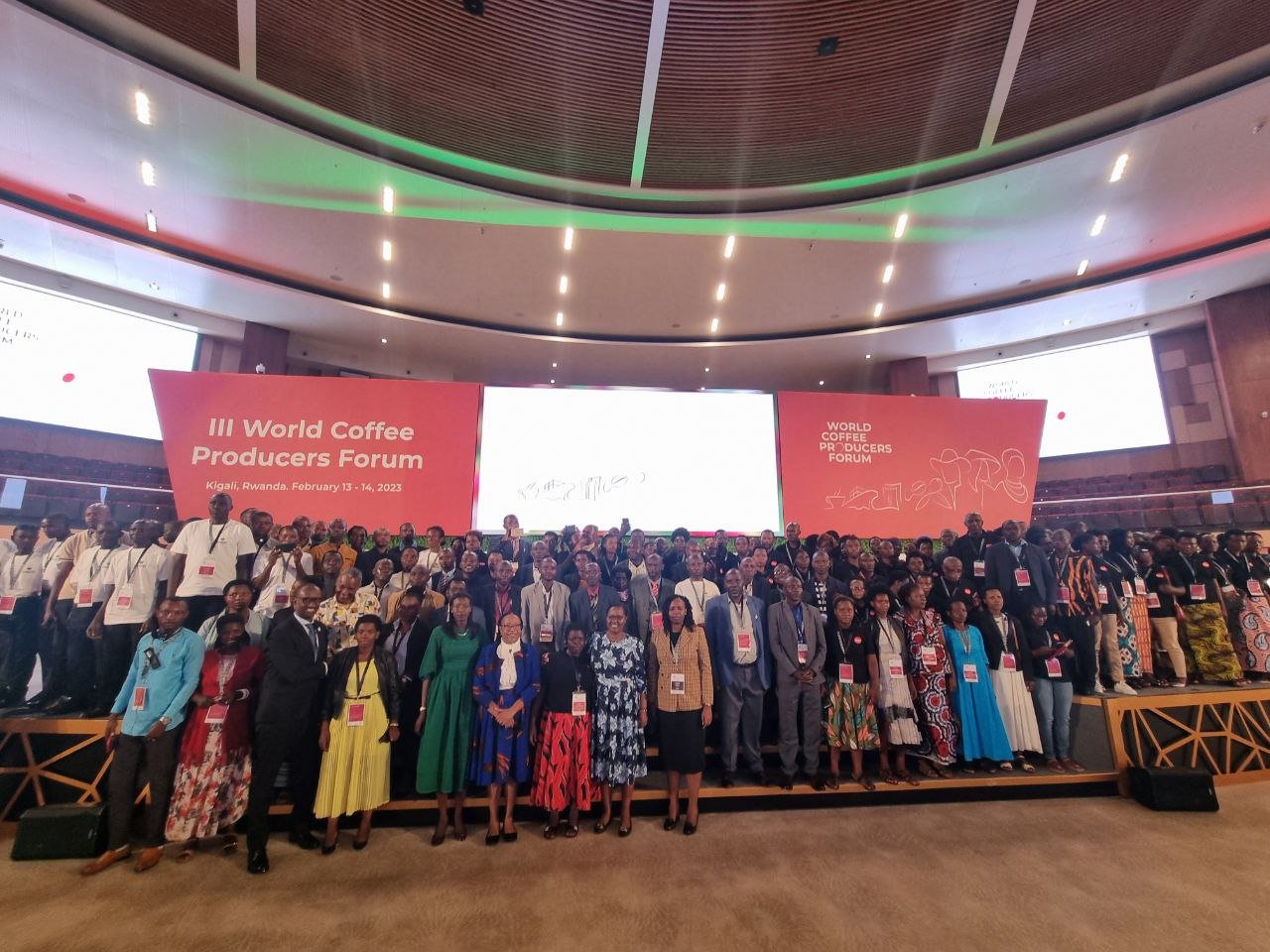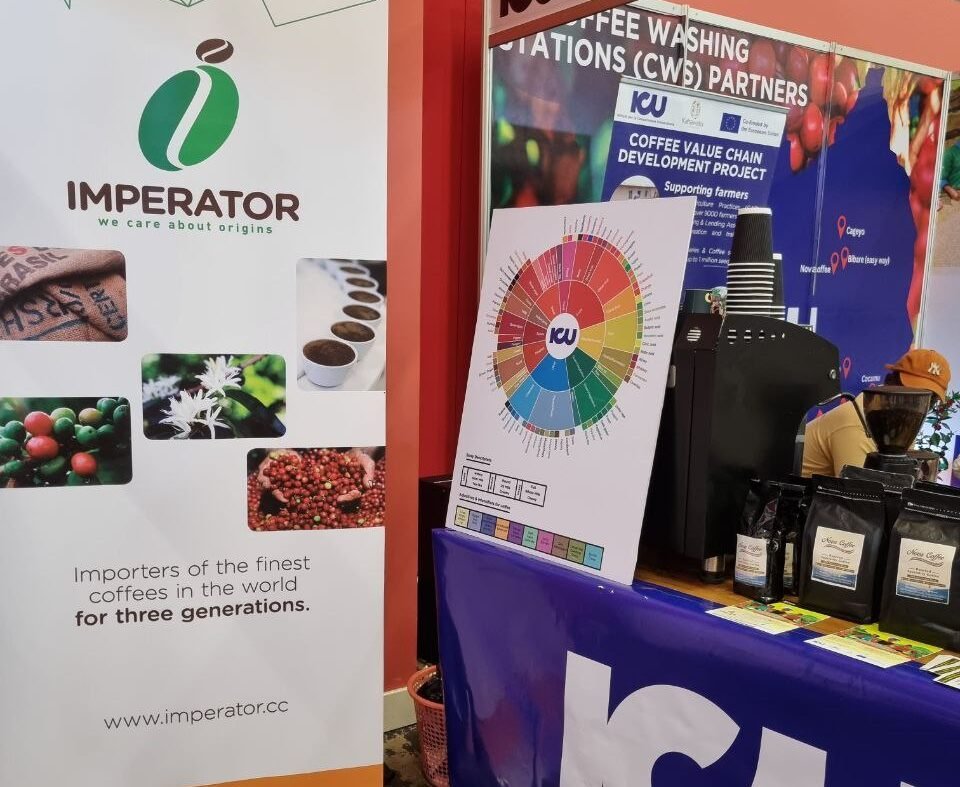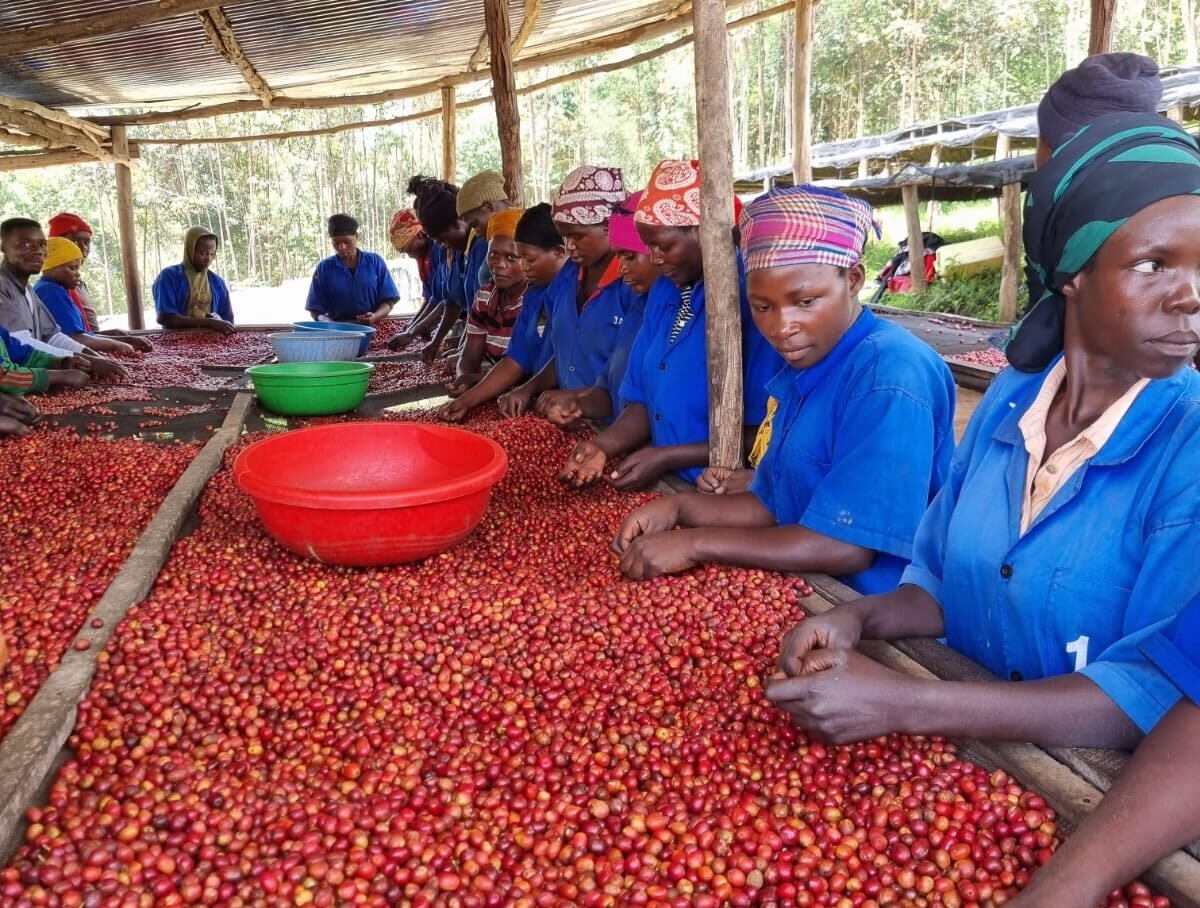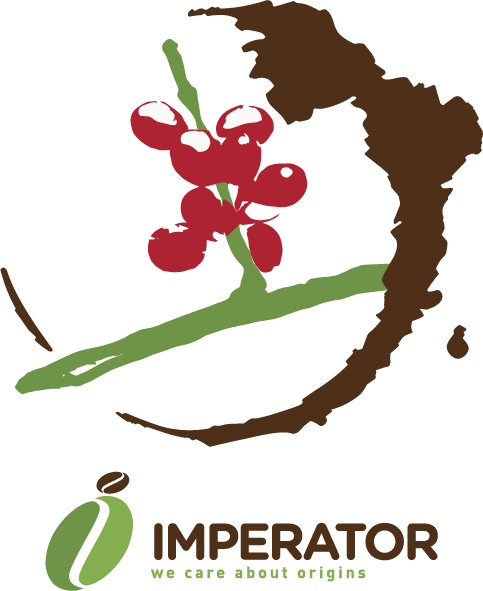to continue supporting local producer communities
A whole week dedicated to the coffee industry, including the World Coffee Producers Forum and the African Fine Coffee Conference, has ended recently in Kigali at the new Kigali Conference Center. Conversations were focused on the recent challenges for coffee producers and the possible solutions that can be adopted in a short term.
The World Coffee Producers Forum and the African Fine Coffee Association Conference in Kigali, Rwanda, attracted most of the stakeholders of the global coffee industry from February 13th to 17th. Representatives from the main companies in the industry gathered at both the events to discuss the challenges and opportunities in the coffee market in terms of sustainability and to find new market opportunities for producers throughout Africa.


RWANDA, THE LAND OF 1000 SCENTS
Imperator and Bloom Coffee School, which have been investing in education and market prosperity in Rwanda for several years, participated in these events to share their experience and knowledge with the different representatives of the industry. Alberto Polojac, quality manager at Imperator Srl and director of Bloom Coffee School, explains how this special relationship started: “I have always been a great estimator of coffees coming from East Africa, with a special appreciation for the most unknown or less acquainted origins, such as Rwanda. During my first trip as a judge for the Cup of Excellence in 2014, I learned about the complexity and uniqueness of Rwandan coffees, until then still relatively unknown, at least in the Italian market. Considering these coffees perfect for any brewing style in terms of acidity, sweetness, and balance, we began to import the first lots from the Gisenyi area near Lake Kivu. It is said that this is the land of 1000 hills, but for me it is also the land of 1000 smiles and 1000 or more aromas.”
TRAINING LOCAL PRODUCERS, FOCUSING ON YOUNG PEOPLE AND WOMEN
From that moment onwards, Alberto Polojac, as a trainer and Q grader, began to develop training programs for the local producers based on the Specialty Coffee Association (SCA) Green and Sensory modules. These programs were included among the development projects promoted by SCA starting from 2015, when Alberto Polojac was nominated as a chair of the International Development Committee inside the association’s board.
“When I was asked to develop development projects in coffee producing countries, I had no doubt that Rwanda was the right place to start from, a very developed country with an enormous unrapped potential. I decided to focus on two specific targets, which are on the top of the global debate still now: youth and women. It is a great satisfaction now to see that people we trained, now hold important roles within the value chain. Nowadays, issues related to generational turnover and gender equity are still at the top of the agenda, including the recent World Coffee Producers Forum. This makes me think that at that time we have seen far ahead.”
Since 2015, Imperator started importing several lots from women cooperatives as a result of this on-field work. Today, Rwanda is undoubtedly one of the most advanced countries on these topics.


COOPERATION WITH ICU AND THE VALUE CHAIN DEVELOPMENT PROJECT
The latest project that saw Alberto Polojac envolved as a trainer and cosultant is the Coffee Value Chain Development program carried out in Rwanda with ICU (Institute for University Cooperation), which involved 20 washing stations in 12 different districts. The program, co-financed by the European Union and supported by NAEB, the National Agricultural Export Development Board, included three different areas of intervention: support for farmers, with a particular focus on gender and youth empowerment; industrial support, through the improvement of equipment and infrastructures in the washing stations; commercial support, facilitating participation in specific trade events and access to financing.
“It was a great joy to come back here with a project that was a natural prosecution of those initially developed with the Specialty Coffee Association almost 10 years ago,” continues Alberto Polojac, “implemented by the support of the non-profit organization ICU, which helped to provide structural support for the washing stations. Each of these has been equipped with a mobile quality control kit including: a sample roaster, temperature and moisture meters, tasting cups and spoons. In addition to this, they were given the opportunity to renew their coffee processing technologies. All of this was officially endorsed by NAEB, the National Agriculture Export Development Board of Rwanda.”
Imperator and Bloom Coffee School confirm their constant commitment to the growth and the development of the coffee sector, not only by promoting training programs at the headquarters in Trieste, but also by supporting sustainability and social responsibility for the entire value chain, with projects envolving institutions and NGOs.
“CUPPING FRIDAY” AND THE TASTE OF THE NEW HARVEST
For those who would like to experience the new arrivals from Rwanda, Imperator is promoting cupping sessions throughout Italy, following the proven formula of “Cupping Friday”. To express interest and sign up for the initiative, you can write to hello@bloomcoffeeschool.it or info@imperator. coffee

